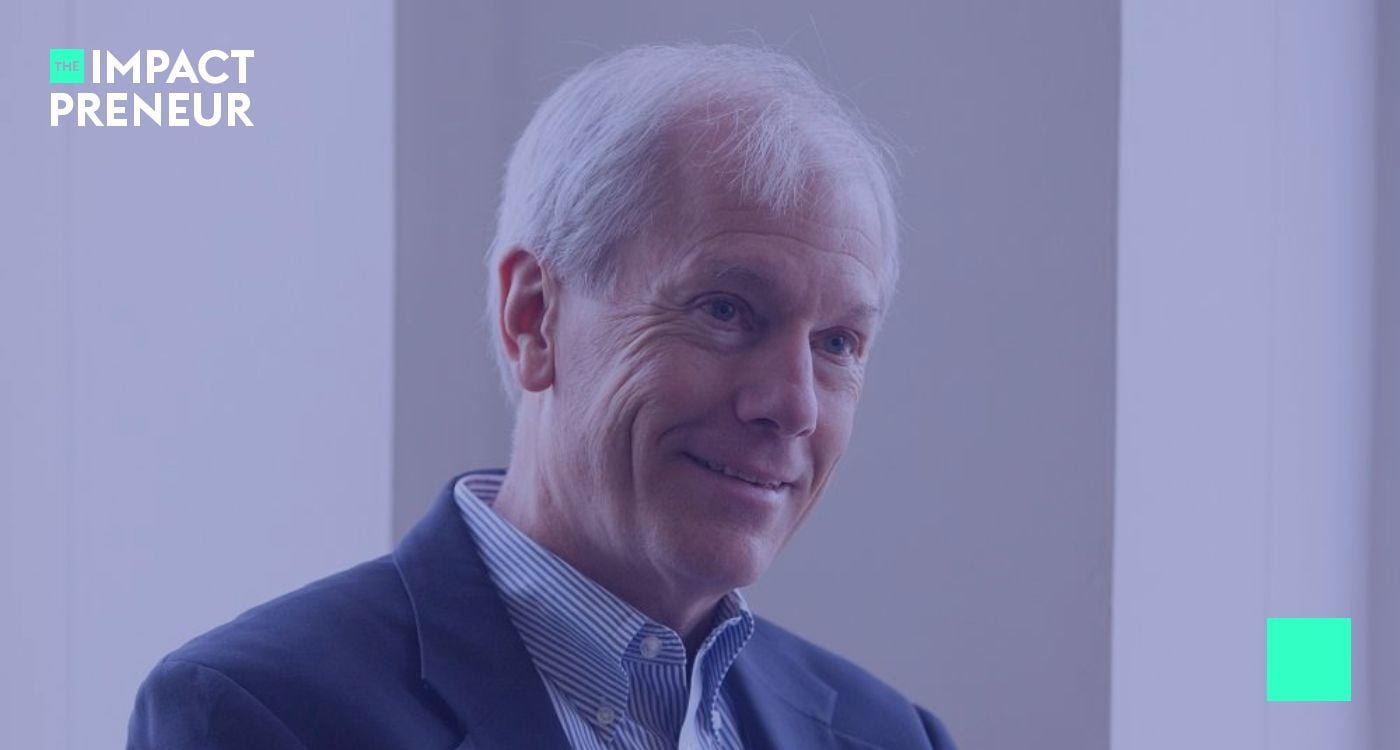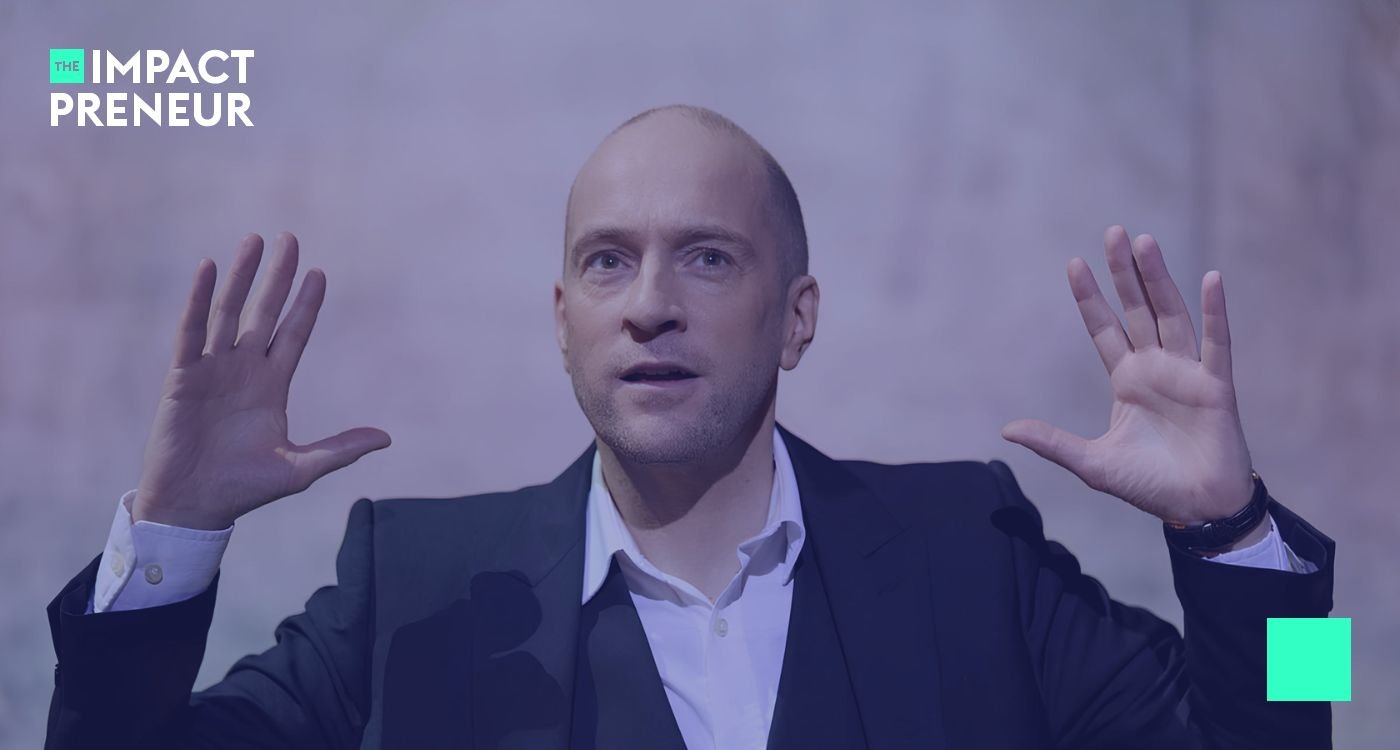Photo: John Mullins | Source: The Case Centre
Ever wonder what separates the dreamers from the doers? The thinkers from the makers? It's not just about having a groundbreaking idea or a hefty bank balance. Nope. It's about something far more intangible but infinitely powerful: mindset. Dive into the world of entrepreneurship, and let's decode the mindsets that could very well be your ticket to the big leagues.
Quick Bites:
- Embrace the "Yes, We Can" spirit
- Solve problems, not just create products
- Focus narrow to achieve broad Success
- Cash flow is the lifeblood of your venture
- Be boldly resourceful
Breaking the Mold: Why Conventional Wisdom Just Won't Cut It
Alright, picture this: It's 1995, and Lynda Weinman decides to snag lynda.com to tinker with new graphic design tools. Fast forward, and boom! LinkedIn snaps it up for a cool $1.5 billion. Lynda's tale is a testament to thinking outside the box, or should I say, smashing it entirely. But what's the secret behind such success stories?
John Mullins, a seasoned entrepreneur and professor at London Business School, lays it bare. Entrepreneurs like Lynda don't just walk the path less trodden; they create new ones. They view the world through a lens that screams, "Why not?" instead of "Why?" It's about daring to defy the status quo, where risk is not a deterrent but a companion on the journey to innovation. Mullins highlights six counter-conventional mindsets that are not just about doing business differently but being different.
"In 1995, a graphic design teacher named Lynda Weinman decided to get the website lynda.com. She did so because she needed a sandbox to play in, with the new graphic design tools." — Mullins shares. This is how stories of innovation begin, not with a grand vision, but with a need to explore and play.
Entrepreneurs challenge the norm, turning "That's not how things are done" into "Let's do things differently." They're the rebels of the business world, thriving on innovation and the thrill of the unknown. These trailblazers don't accept limitations; they redefine them. It's not about breaking rules for the sake of it; it's about questioning why those rules exist in the first place and whether there's a better way.
This mindset is about resilience and flexibility. Entrepreneurs are like water, finding their way around obstacles, through cracks, always moving towards their goal. They understand that the business landscape is ever-changing and that adaptability is key to survival and success. They're not afraid to pivot, to rethink their strategies, and to embrace failure as a stepping stone to success.
The "Yes, We Can" Spirit
Let's kick things off with a mindset that loves a good challenge. It's the "Yes, We Can" attitude. Forget sticking to your knitting. Entrepreneurs thrive on venturing into the unknown. Take Arnold Correa, who transformed his event management business into a digital powerhouse by simply saying "Yes" to broadcasting training events across Brazil. By embracing challenges outside their comfort zones, entrepreneurs like Correa redefine possibilities.
Arnold Correa, a Brazilian entrepreneur, built a remarkable business called Atmo Digital. He had already reinvented his business twice to become a major provider of event management and production services. His willingness to say "Yes" to challenges outside his expertise illustrates the essence of the entrepreneurial spirit.
"When someone asked if we could put televisions in training rooms across Brazil, I didn't blink before saying, 'Yes, we can do that.' Even though I had no clue about satellite tech!" - Arnold Correa
Saying "Yes, we can" is more than optimism; it's a commitment to finding solutions. It's about seeing potential where others see problems. This mindset empowers entrepreneurs to venture into uncharted territory with confidence and determination. It's the belief that every challenge is an opportunity in disguise, waiting to be seized.
But it's not just about saying yes to everything; it's about strategic risk-taking. Entrepreneurs evaluate the risks, but they don't let fear hold them back. They're willing to take calculated leaps of faith, knowing that the greatest rewards often come from the biggest risks. It's this fearless approach to business that sets them apart and paves the way for breakthrough innovations.
And let's not forget, the "Yes, We Can" spirit is contagious. It inspires teams, attracts investors, and builds trust with customers. It's the foundation of a culture that embraces growth, learning, and constant evolution. Entrepreneurs who embody this spirit lead by example, showing that with the right attitude, any obstacle can be overcome.
Problems First, Solutions Second
Next up, we flip the script with the "Problem First, Not Product-First Logic." Innovators don't lose sleep over products; they obsess over problems. Mullins points to Jonathan Thorne, who didn't just create a new surgical forceps; he solved a real issue that plagued surgeons. It's a subtle but game-changing shift in perspective: Focus on making lives better, and the products will follow.
Jonathan Thorne, an innovator who developed a technology for surgical forceps that don't stick to human tissue, exemplifies the problem-first logic. His dedication to solving a specific issue for surgeons underlines the importance of focusing on real-world problems rather than just product features.
"I asked myself, 'Is there a bigger problem I can solve?' That's when I turned to neurosurgeons. You know, the brainy bunch!" - Jonathan Thorn's shift from plastic surgeons to neurosurgeons underlines the essence of focusing on problems, not just products.
This mindset shifts the focus from what we can sell to what we can solve. It's about empathizing with the customer, understanding their pain points, and then crafting solutions that address those needs. Entrepreneurs know that a product is only as good as the problem it solves. They start with the why before jumping to the how.
It encourages innovation from the ground up. When you're focused on solving a problem, you're forced to think creatively, to challenge assumptions, and to explore new possibilities. This problem-first approach is the engine of innovation, driving entrepreneurs to develop unique, impactful solutions.
Moreover, it builds a deeper connection with customers. When people see that you're genuinely interested in solving their problems, they're more likely to trust your brand and become loyal supporters. This approach turns customers into advocates, amplifying your message and helping your business grow organically.
The Art of Thinking Narrow
Think narrow, not broad. Sounds counterintuitive, right? Well, not in the entrepreneurial playbook. Success stories like Nike started with a hyper-focused vision. Phil Knight and Bill Bowerman didn't aim to cater to every athlete; they zeroed in on distance runners, solving their specific woes with revolutionary footwear. The lesson? Sometimes, aiming for a slice of the pie is the first step to owning the whole bakery. Nike's journey from a niche market to a global leader in athletic footwear exemplifies the power of thinking narrow.
"Thinking narrow allowed us to become experts in our field, making better products, targeted marketing, and stronger customer relationships. Quality over quantity, depth over breadth." - The Nike mantra shows how starting with a niche market can lay the groundwork for global domination.
This approach also makes it easier to stand out in a crowded market. In a world where everyone is trying to be everything to everyone, specialization is a breath of fresh air. It's a clear signal to customers who have specific needs that you're the go-to solution. And in today's cluttered market, that clarity is invaluable.
Moreover, starting narrow doesn't mean staying narrow. Just like Nike, entrepreneurs can expand their focus as they grow, leveraging their expertise and reputation to enter new markets. But it all starts with dominating a niche, building a solid foundation, and then scaling from there.
Cash Flow is King
"Cash is king" might sound cliché, but when it comes to startups, it's gospel. Mullins highlights the strategic genius of Elon Musk and the early days of Tesla. Musk understood the power of cash flow, selling the vision of Tesla before the first Roadster ever hit the streets. It's about creating a buzz, generating upfront cash, and using that momentum to fuel growth. Ingenious, right?
Elon Musk's approach to funding Tesla showcases the importance of cash flow in the early stages of a startup. By securing pre-orders for the Tesla Roadster, Musk ensured that the company had the necessary funds to begin production, demonstrating the power of innovative funding strategies.
Managing cash flow is critical for entrepreneurs. It's the lifeblood of any business, ensuring that operations can continue, growth can be funded, and crises can be weathered. Smart entrepreneurs are always looking for ways to improve cash flow, whether through pre-sales, crowdfunding, or strategic partnerships.
This mindset also encourages a lean approach to business. By focusing on cash flow, entrepreneurs are forced to prioritize spending, invest in what truly matters, and cut out unnecessary expenses. It's about being resourceful, making every dollar count, and driving efficiency throughout the organization.
And let's not forget the strategic advantage of having cash on hand. It allows entrepreneurs to seize opportunities quickly, invest in growth at the right moment, and negotiate from a position of strength. In the fast-paced world of startups, being able to move quickly and confidently can make all the difference.
The Rule of Resourcefulness: Beg, Borrow, but Don't Steal
Resourcefulness is the entrepreneur's best friend. Mullins shares the story of Go Ape, a treetop adventure company that built its business by leveraging resources they didn't own. They partnered with the UK Forestry Commission, using public lands to launch their venture. It's a brilliant reminder that sometimes, the assets you need are right there for the taking—you just need to ask.
"Who says you need to own everything? We borrowed the trees, the loos, the parking lots - all of it. And look where it got us!" - The Go Ape story is a prime example of entrepreneurial resourcefulness, turning constraints into opportunities.
Entrepreneurs excel at making the most of what they have. It's not about having access to endless funds; it's about using whatever is at your disposal in the most effective way possible. This mindset fosters innovation and agility. When you're resourceful, you're more likely to experiment, to try new things, and to pivot when necessary. It's about being nimble, adapting to changes, and always looking for ways to do more with less.
Moreover, resourcefulness builds resilience. Entrepreneurs who can navigate challenges with limited resources are better prepared to face the ups and downs of business. They develop a "can-do" attitude that helps them overcome obstacles and persevere through tough times.
Permission? What's That?
Lastly, we venture into the delicate dance with regulations. Entrepreneurs like Travis Kalanick of Uber didn't wait for a green light from regulators. They charged ahead, navigating the gray areas of the law to redefine urban mobility. It's a risky move, fraught with challenges, but it underscores a critical trait of successful entrepreneurs: boldness in the face of uncertainty.
"Starting a taxi company without taxis? Who does that? We didn't ask for permission; we just went for it." - The Uber story is a bold reminder that sometimes, it's better to ask for forgiveness than permission.
Travis Kalanick and Garrett Camp, the founders of Uber, revolutionized urban transportation by launching a service that challenged traditional taxi models. Navigating regulations requires a delicate balance. Entrepreneurs must be savvy, understanding the legal landscape and finding ways to innovate within it. It's about pushing boundaries while staying on the right side of the law. They're not reckless; they're calculated risk-takers.
This approach can disrupt industries. By challenging the status quo and exploring new business models, entrepreneurs can shake up established markets, introduce new standards, and drive progress. It's not just about creating new products; it's about reimagining how things are done.
But with great power comes great responsibility. Entrepreneurs must navigate ethical considerations, ensuring that their ventures not only comply with the law but also contribute positively to society. It's about finding that sweet spot where innovation meets responsibility.
The Entrepreneurial Essence: A Conclusion
So, what's the moral of the story? Being an entrepreneur isn't just about having a groundbreaking idea; it's about embracing a mindset that challenges the status quo, sees opportunity in adversity, and doesn't shy away from risk. It's about being a maverick that dares to say, "Yes, we can," focuses on solving real-world problems, thinks strategically about target markets, manages cash flow like a pro, uses resourcefulness as a cornerstone, and navigates the regulatory landscape with agility.
Your Turn: Actionable Insights
Feeling inspired? Ready to channel your inner entrepreneur? Here are a few steps to get you started:
- Identify a Problem: Look around you. What problems do people face that you're passionate about solving?
- Think Small to Go Big: Start with a niche market. Understand their needs deeply and tailor your solution accordingly.
- Bootstrap Your Way: Explore creative ways to fund your idea without breaking the bank. Pre-sales, crowdfunding, or partnerships can be your initial fuel.
- Leverage Available Resources: Use what's available to you. Look for partnerships, collaborations, or shared resources to minimize costs.
- Just Start: Don't wait for permission or the perfect moment. Take the leap, learn from the journey, and pivot as needed.
Embarking on the entrepreneurial path is not for the faint-hearted. It requires courage, resilience, and an unwavering belief in your vision. But remember, every big venture starts with a single step. So, why not make today the day you take yours?
Questions on the Topic
Q: Is innovation about products or problems?
A: Innovation's not just slapping a new color on a product and calling it "new and improved." It's about spotting problems and solving them. Take John Thorne's surgical forceps that don't stick to tissue—a game-changer for neurosurgeons. Fixate on problems, not products. That's where the real magic lies.
Q: How narrow should my target market be?
A: Ever thought targeting a small niche was a bad move? Nike's founders would beg to differ. They zoomed in on elite distance runners and revolutionized running shoes. Start small, think big. Who knows? You might just be on the path to becoming the next global leader.
Q: Can you really ask for cash upfront?
A: Elon Musk and Tesla did, and look where they are now! Securing $100,000 for each of the first 100 Tesla Roadsters before production even began. It's all about confidence and selling your vision. Cash is king, and pre-orders can be your kingdom's foundation.
Q: Is it better to beg, borrow, or steal?
A: The founders of Go Ape built a treetop adventure empire by borrowing—well, not exactly the trees, but the rights to use them. The moral of the story? Leverage what's already there. It's resourceful, smart, and can significantly cut down your costs.
Q: Should I wait for permission or forge ahead?
A: Travis Kalanick and Garrett Camp didn't wait for a green light to launch Uber. Sometimes, it's better to ask for forgiveness than permission. However, tread carefully. Being bold doesn't mean being reckless. Ethics and legality should always be your compass.



